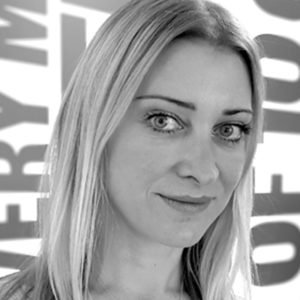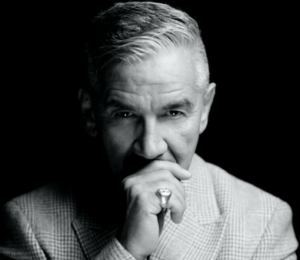Of the many changes necessitated by the arrival of the pandemic, a common experience that we have all shared over the course of the past nine months of lockdown, is that – in some capacity or another – it has made home cooks of us all. With more time spent in the home, it was inevitable that even more time would be spent in the kitchen.
Toss this into the same salad bowl as the matter that coronavirus has forced many of us to think more carefully about the money we are spending, and underlined the importance and value of the sustainability message through a heightened consumer awareness of environmental issues, and it would appear that the relaunch of Banijay’s hit afternoon TV series, Ready Steady Cook couldn’t have been more timely.
Over the course of the decade that has passed since Ready Steady Cook was last on air, things – the world – has certainly changed. Consumer sensibilities have shifted, sustainability is a topic increasingly on the minds of shoppers, and our relationship with food and its value has evolved somewhat, and as it finds new life on the BBC once again, it is all of these points that the popular cooking challenge television show that first surfaced some 25 years ago, is looking to encapsulate.

Following the announcement this week that Banijay isn’t just re-heating, but firing up a whole new audience passion around the Ready Steady Cook IP, Licensing.biz catches up with Alice Bernardi, director of international brand licensing at Banijay Brands, to discover how licensing will be promoting the show’s new values for an audience of reinvigorated home cooks.
Can you tell us why now is an exciting time to be relaunching the licensing plans around Ready Steady Cook?
It’s an incredibly exciting and appropriate time to re-launch the licensing programme around Ready Steady Cook because the world has changed a lot since the show was last on air in the UK – over 10 years ago – and times have certainly changed. Our attitude to food, it’s provenance, preserving the climate and our increased awareness of eating a balanced diet have all contributed to a different culinary environment. More than ever sustainability and ethically produced food are part of our day to day thinking as we make purchase decisions around what to cook with.
There are a number of initiatives that the show is adopting to reflect this – for example, plastic bags have been replaced with re-usable jute bags, single plastic use is avoided with glass being used as much as possible, recycling is so important as part of the show with colour coded waste bins both on set and backstage, local suppliers are used as much as possible and given the show is produced in Scotland this gives a fantastic range of great fresh and seasonal produce and at the end of the day, unused fruit and vegetables and non-perishable goods are delivered to a local food bank.
So the production team works incredibly hard to deliver this key element of the show which as we all know could not be more relevant nor important in 2020. An additional element which remains so relevant is cooking on a budget and making sure that we don’t throw away our surplus food but find a way to re-use it.
Households everywhere are challenged with weekly budgets and finding a way to cook wholesome and tasty food cost effectively at the same time as being aware of the impact food has on the environment is a compelling proposition. In the most recent series, we are using the same values as 15 years ago with contestants who had a shopping budget of just £3.50 up to £10 which adds an additional challenge given inflation, but wanted it feel inclusive, which is what we want to reflect in the licensing programme, there will be something for everyone.
What is the strength of Ready Steady Cook here in the UK? How has it maintained its popularity over the years?
You can’t underestimate the power of a legacy show with such high awareness. Ready Steady Cook aired for 16 years on the BBC and is still much loved and recognised – the green peppers and red tomatoes are such strong icons which are instantly recalled by so many of us today.
Many of today’s audience still remember coming home from school and watching the show when they were young and now can enjoy it as families with their kids. Originally it was broadcast in the same slot at 4.30pm, stripped daily on BBC 1 and was also on iPlayer. The show’s ratings were very strong, delivering a highly desirable younger audience of 16 to 34 year olds alongside adults aged 35 to 54. The show regularly performed above the slot average and has a consolidated audience of 2.35m viewers beating the BBC 1 slot average by 34 per cent.
Internationally, the show has travelled to over 25 markets including the US, Australia, Brazil, France, Germany the Middle East and the Nordics. The simple format, combining a cooking challenge on a budget remains the same but with added timed food challenges and more curved balls from unpredictable audience participation which enhance the viewing experience.
Having Rylan Clark Neal (X-Factor, Celebrity Big Brother) at the helm brings a new energy, charisma and passion to the show, appealing to both younger and older audiences, and is a hugely popular presenter here in the UK so is a big draw for audiences. And because he’s not a chef, I’m sure he makes those who are less talented in the kitchen feel a lot more included.
Rylan is the ideal foil to the five new chefs who have the task of completing the challenges and is able to hold the show together in a humorous and quick-witted way, keeping the pace and energy levels high. We have also made sure to reflect the current diverse range of foods we all now love, and our chefs feature recipes from all over the world so there’s something for everyone to relate to.
Basically, the original and central message of brand is still as relevant as ever – cooking on a budget, in very little time – but with the important element of sustainability front and centre, which ultimately resonates with the viewers and is why it continues being so popular for all ages.
Lockdown seems to have encouraged more home cooks, and more home cooking than ever before. How will you be tapping into this new found audience through licensing? What are the key audiences you are looking to tap into here?
Exactly, lockdown made home cooks out of many of us! The world has never cooked at home more through pure necessity and with a focus back on the kitchen, cooking, whether you are enjoying an evening alone, with friends or family, it has become an even more important part of our daily lives as we connect through food. But we have less money than before, so we need to cook carefully and hopefully responsibly.
We still want to experiment with dishes and try new things, so this show encourages us to do this whilst still living within our means. So hopefully Ready Steady Cook offers everyone something they can take away and apply in their own lives. Our demographic is broad as cooking speaks to everyone so our licensing programme will offer cost effective products which are true to the ethos of the show and can be used by everyone and anyone with no barrier to entry.
What licensing deals will you be coming out of the starting blocks with? How will this set you up for a wider programme to roll out?
Our initial licensing programme will focus on the core categories of publishing, foodstuffs and kitchenware. We see storage containers, measuring and recycling tools as key product lines. We’re also keen to develop an experiential offering so people can enjoy the brand in person and have fun with it – hopefully this space will open up more next year.
Partnerships with organisations in the sustainability area are also a key area of focus to ensure the brand DNA extends off screen into real life practises. Great value for money resonates with today’s consumers and this will be factored into our licensing programme. We also know that consumers care more and more about what they eat and where in comes from both for health reasons and for environmental reasons. Therefore, we plan to offer consumers a range of products that will incorporate all of these elements and make Ready Steady Cook the standout brand in relation to sustainability.
What sort of retail partnerships will you be targeted with the licensing programme?
As we all know the retail landscape is in flux with the impact of lockdown. Consumer’s behaviour patterns have changed with online and value more dominant than ever. We will respond to this and partner with the best and most appropriate retailers to deliver the best consumer offering. We are open to multi territory partnerships delivering scale and working with organisations to amplify the sustainability message.











